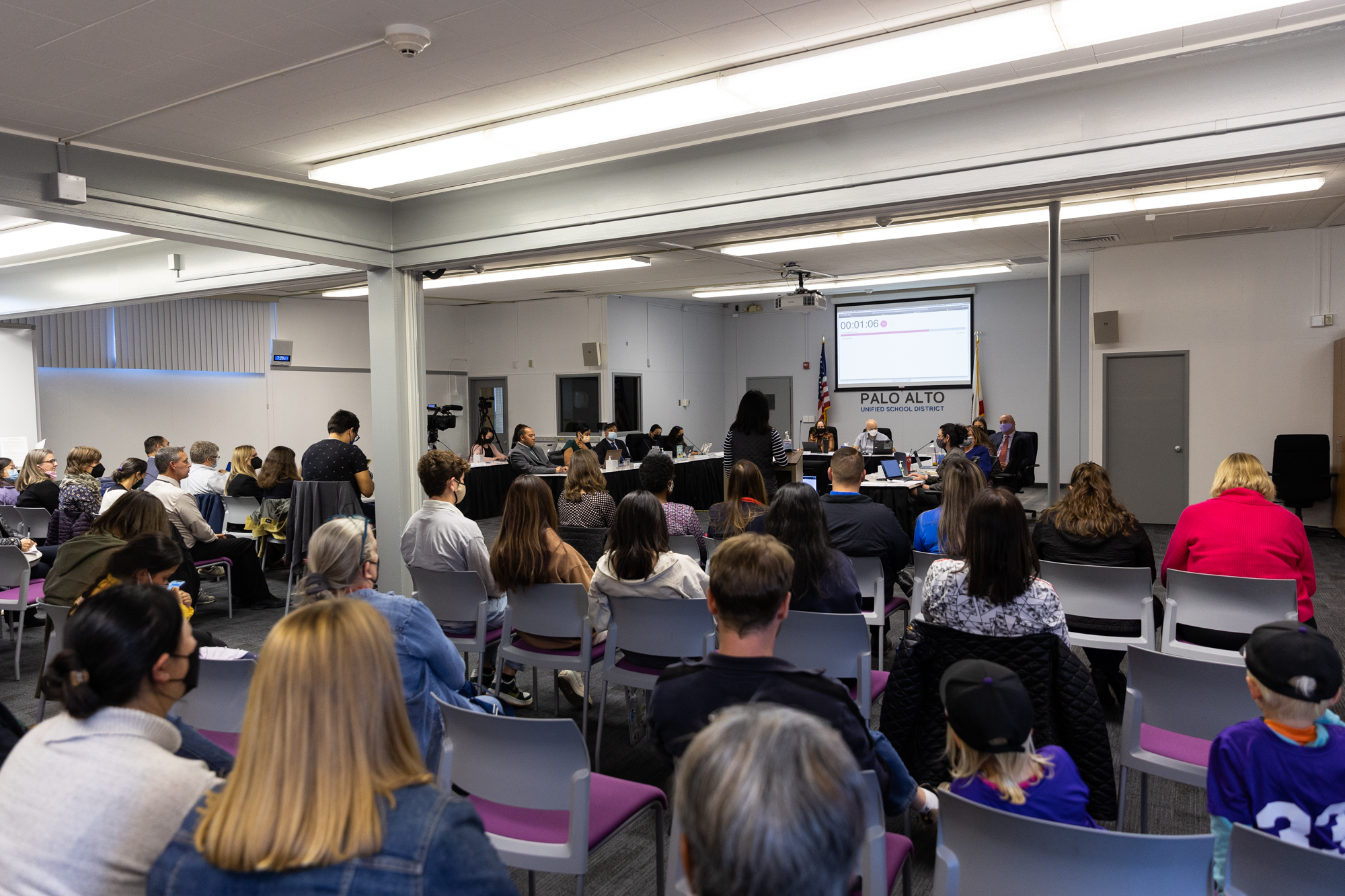Zoom commenting is here to stay at the Palo Alto Unified School District, with the board voting at a Tuesday meeting to codify the practice and accompanying procedures to facilitate virtual participation.
On Aug. 23, the school board voted 4-0 to permit remote public commenting during regular board meetings, a practice that started during the COVID-19 pandemic. Board President Ken Dauber was absent.
The long-term future of remote commenting came into question in April when the board reverted back to its pre-pandemic practice of only accepting comments from those physically present.
The move drew concern from board member Shounak Dharap, who advocated for retaining Zoom commenting as an option. In June, the board voted to resume remote participation and form an ad hoc committee that would present recommendations on public commenting procedures at the first board meeting of the 2022-2023 school year. Dharap and Dauber served on the committee, which met over the summer.
On Tuesday, the board approved four proposals from the committee: permitting remote public comment at regular board meetings; allowing a meeting to continue even if remote commenting isn't provided for any reason, such as a technical glitch; alternating between in-person and virtual speakers; and allowing students to comment first, subject to the rule about alternating between in-person and virtual speakers.
The board delayed voting on two broader changes to public comment that the committee recommended. One change would give speakers a maximum of two minutes to speak, versus the current three, with time reduced further based on the number of speakers present. The second would cap the total public comment time to 30 minutes per agenda item.
Vice President Jennifer DiBrienza, who was leading Tuesday's meeting in Dauber's absence, said that she didn't feel comfortable voting on those two proposals at the first meeting where they were presented, adding that they seemed outside the purview of the ad hoc committee.
"I think they are worth discussing, but I don't think they belong here," DiBrienza said.
The 30-minute cap was approved by the board back in September 2017, but for unknown reasons the change was never added to the board's bylaws. The agenda setting committee will review the board's 2017 action and consider how to proceed, DiBrienza said, adding that she feels the board should either codify that decision or vote on a different action.
Teachers' union President Teri Baldwin was the sole member of the public to address the board about its commenting procedures during Tuesday's meeting and expressed concern about reducing commenting time.
"I just think that we are cutting off community and educator and student voice when we limit it to two minutes and then limit it to 30 minutes per item," Baldwin said.
Palo Alto High School student board member Johannah Seah also said that she wants to ensure there's as much time as is logistically possible for public comment and that it isn't always easy for students to clearly articulate their thoughts in under two minutes.
Dharap said that it has already been rare for public comment to go beyond 30 minutes for a given item, even at the height of public commenting during the discussions around COVID-19 school closures, but that he is open to considering other time limits. Dharap added that his perception is that many speakers are done with the substance of their comments within two minutes.
Board member Todd Collins supported finding ways to address a concern that remote participation could allow a large number of people from outside the district to hog public comment time during a board meeting. Options Collins suggested included giving the board president the power to suspend Zoom commenting for any reason or to prioritize in-person commenters, though Collins acknowledged that these ideas could be more trouble than they are worth.
As a member of the ad hoc committee, Dharap said he considered this issue, but couldn't find a solution that didn't risk running afoul of First Amendment protections.
The board's agenda setting committee plans to review the proposals discussed at Tuesday's meeting — including the two-minute cap per speaker, 30-minute item limit and ways to protect against an influx of outside commenters — and plans to bring them back at a future board meeting.



Comments